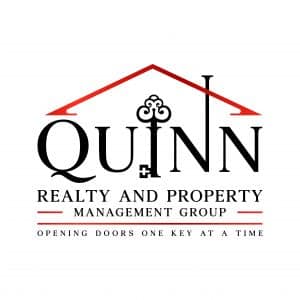Explore Quinn Realty and Property Management for Superior Solutions
Explore Quinn Realty and Property Management for Superior Solutions
Blog Article
Optimizing Home Monitoring Procedures for Long-Term Profitability and Renter Retention

Effective Communication Techniques
Efficient interaction is extremely important in maximizing residential property administration operations. Efficient and clear interaction makes sure that all stakeholders, including homeowner, lessees, upkeep personnel, and management, get on the same web page, bring about smoother procedures and enhanced lessee fulfillment. One important aspect of efficient interaction is setting clear assumptions from the get go. Building supervisors ought to plainly describe lease terms, upkeep procedures, and interaction channels to stay clear of misunderstandings down the line.
Making use of innovation can likewise greatly improve interaction efficiency in building management. Executing residential property monitoring software that enables real-time updates, automated alerts, and very easy documents can simplify communication procedures and boost overall operational effectiveness. Additionally, routine communication via numerous networks such as e-mail, phone telephone calls, and in-person conferences can aid cultivate favorable relationships with tenants and deal with any kind of problems immediately.
Modern Technology Assimilation for Maintenance
In the realm of building monitoring optimization, a vital part that improves operational effectiveness and maintenance procedures is the assimilation of modern technology for enhancing maintenance tasks. By incorporating modern technology right into maintenance operations, building supervisors can benefit from improved job order monitoring, positive maintenance organizing, and boosted communication with maintenance teams and renters.
One significant advantage of modern technology combination in maintenance is the capability to centralize job orders and track upkeep demands digitally. This simplifies the procedure of getting, assigning, and finishing maintenance tasks, leading to quicker feedback times and boosted tenant satisfaction. Anticipating maintenance modern technologies can help in recognizing possible problems prior to they escalate, minimizing the likelihood of expensive repair services and reducing downtime.

Data-Driven Decision Making
Using data-driven insights equips building supervisors to make educated choices that enhance operational effectiveness and take full advantage of asset efficiency. Quinn Realty and Property Management. By leveraging information analytics tools and modern technologies, residential property managers can draw out beneficial information from numerous sources such as occupant feedback, maintenance documents, and market fads. This data can give essential understandings into renter choices, operational bottlenecks, and cost-saving possibilities
Data-driven decision-making enables home supervisors to identify patterns and patterns that might not appear via conventional monitoring. For instance, assessing maintenance information may expose reoccuring concerns in specific devices, allowing managers to proactively deal with underlying issues and protect against future costly repair services. Moreover, by keeping an eye on occupant satisfaction metrics and lease renewal rates, residential or commercial property managers can tailor their services to satisfy renter expectations, eventually enhancing renter retention and long-lasting productivity.
In addition, data-driven understandings can likewise inform strategic financial investment choices by highlighting areas for improvement or development based upon market demand and efficiency metrics. Generally, integrating data-driven decision-making procedures right into residential property administration operations can lead to more reliable resource appropriation, enhanced tenant satisfaction, and boosted success in the future.
Occupant Satisfaction Campaigns
Drawing understandings from data-driven decision-making, home managers can carry out targeted tenant fulfillment initiatives to boost overall leasing experiences and foster check that lasting tenant partnerships. By understanding occupant preferences and pain factors, residential or commercial property supervisors can tailor their solutions to fulfill the particular demands of their tenants, inevitably leading to greater contentment levels and boosted tenant retention rates.
One efficient lessee complete satisfaction effort is to develop clear lines of communication with occupants to deal with any kind of issues immediately. Normal feedback surveys can additionally provide useful understandings into occupant contentment degrees and areas for improvement. Residential property supervisors can utilize this feedback to make required modifications and reveal occupants that their point of views are valued.

Additionally, arranging community events and services that accommodate the passions of lessees can develop a feeling of belonging and improve general fulfillment. By promoting a engaging and favorable neighborhood atmosphere, residential property managers can strengthen tenant relationships and urge long-lasting leases, eventually increasing profitability and lessee retention in the lengthy run.
Enhancing Operational Procedures
One crucial facet of improving functional procedures is the integration of innovation remedies such as residential or commercial property monitoring software, which can automate tasks, enhance interaction, and offer real-time information insights. By digitizing processes like upkeep requests, lease collection, and lease revivals, property supervisors can conserve time, minimize errors, and boost tenant complete satisfaction.
Additionally, applying standard treatments and workflows can help create consistency across buildings, reduce complication, and streamline day-to-day operations. Consistently reviewing and optimizing these processes is important to adapt to changing market conditions, lessee demands, and governing needs. By continually looking for methods to enhance operational processes, home managers can not only increase their very own performance yet additionally supply much better services to renters, eventually resulting in long-term productivity and occupant retention.
Final Thought
In final thought, enhancing residential or commercial property management operations via effective interaction, modern technology combination, data-driven choice making, renter fulfillment efforts, and enhancing procedures is important for long-term earnings and renter retention. By applying these methods, home managers can enhance operational effectiveness, reduce expenses, and enhance occupant satisfaction, eventually leading to boosted profitability and occupant loyalty. It click to read is crucial for residential property management business to continually assess and readjust their operations to satisfy the advancing requirements of both lessees and the market.
Clear and effective communication makes sure that all stakeholders, consisting of home proprietors, occupants, maintenance personnel, and monitoring, are on the very same page, leading to smoother operations and raised tenant complete satisfaction - Quinn Realty and Property Management. By monitoring renter fulfillment metrics and use this link lease revival prices, residential or commercial property managers can customize their solutions to fulfill lessee expectations, ultimately improving renter retention and long-lasting earnings
By continually looking for means to streamline operational processes, residential or commercial property managers can not only enhance their own effectiveness however additionally supply far better solutions to lessees, inevitably leading to lasting profitability and lessee retention.
In conclusion, maximizing property management operations through efficient communication, technology assimilation, data-driven choice production, occupant fulfillment efforts, and improving processes is essential for lasting productivity and occupant retention (Quinn Realty and Property Management). By executing these techniques, residential or commercial property supervisors can boost operational efficiency, lower expenses, and enhance tenant contentment, eventually leading to enhanced profitability and lessee loyalty
Report this page